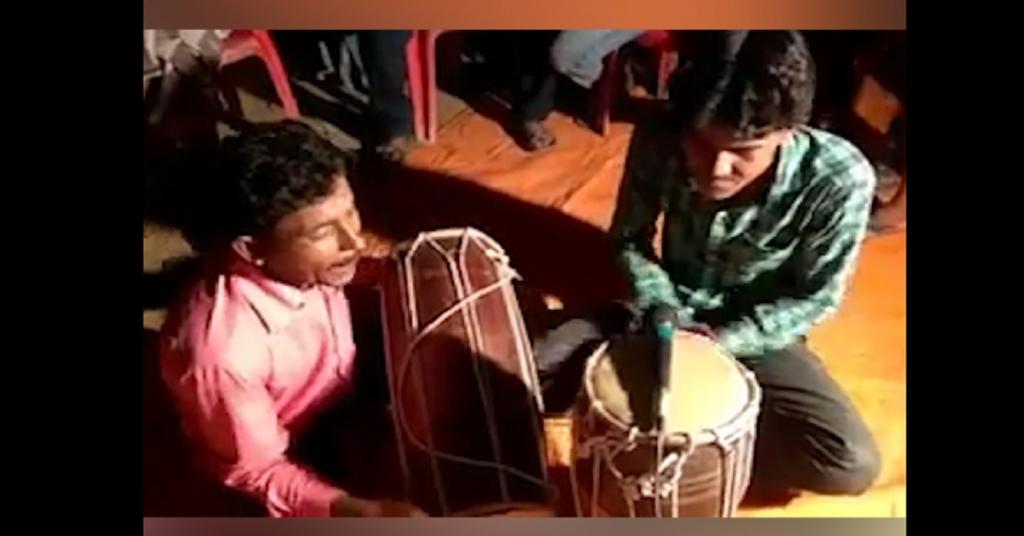Folk music from Bengal has always been one of those few genres that stood the test of time, regardless of migration and modernisation. From the songs of bauls or fakirs to bhatiyali sung by the oarsmen, traditional folk has been played time and again, across diverse festivals, regardless of religion or caste.
One such instance of celebration has been weddings. Bengali Muslims have always incorporated rare gems of traditional folk amidst their wedding celebrations. Some of these songs have been passed on from generation to generation, some have been improvised and freshly created – highly influenced by traditional folk music. Even though there are many differences within the Muslim community about the regulations of performing music at weddings, folk music has been known to be loved by many and played across districts in Bengal.
CJP’s Grassroots Fellowship Program is a unique initiative aiming to give voice and agency to the young, from among the communities with whom we work closely. These presently include migrant workers, Dalits, Adivasis and forest workers. CJP Fellows report on issues closest to their hearts and home, and are making impactful change every day. We hope to expand this to include far reaching ethnicities, diverse genders, Muslim artisans, sanitation workers and manual scavengers. Our raison d’etre is to dot India’s vast landscape with the committed human rights workers who carry in their hearts Constitutional values, to transform India into what our nation’s founders dreamt it to be. Please Donate Now to increase the band of CJP Grassroot Fellows.
For years, in most Muslim families, music has been inextricably linked as a cultural accompaniment to various festivals and celebrations. It was typical of a house celebrating a wedding, for the women to gather together and start singing folk songs two to three days in a row, before the main event. These songs used to continue till the bride would leave for her in-laws’ house. The day after the bride would reach her in-laws’, all friends and relatives would gather together to sing cultural songs and play with paint and ink. This continued for years. Though many Muslim clerics have tried to ban these practices on the pretext of them being ‘un-Islamic’, these rituals have stayed on.
Even then, presently, those very aspects of culture that Bengal once cherished for hundreds of years, are dwindling. It’s not very common for traditional folk music to be played at weddings anymore. But brothers from Birbhum’s Pachiyara village, Rahim Khan and Ujjal Khan, are striving to keep the tradition alive. They belong to a marginalised community, with a passion for folk music that they have learned and polished, since childhood. When it came to finding means to support the family, these brothers took it as a profession. For a meagre salary, which is often quoted as an honorarium, Rahim and Ujjal travel from village to village during the wedding season and perform their music.
Watch them perform at a wedding in Birbhum here.
There are a few singers like the Khan brothers who have devoted their time and energy to uphold these age old traditions and the beauty of folk music in celebrations, especially in rural Bengal. With no support from district levels, let alone Government’s aid, these artists are struggling to make their ends meet. Isn’t it time for people like them to get their dues for performing a dying artform?
This report is part of CJP’s Grassroots Fellowship Program, and has been written by aspiring journalist and student activist Ripon Sheikh from Birbhum in West Bengal. In these reports Ripon looks at the people around him – migrant workers, the families they leave behind, agricultural labourers, women who do housework, rural artisans and young people, with a keen sense of compassion.
Meet CJP Grassroot Fellow Mohammed Ripon Sheikh
This young man, who has graduated with a B.Sc degree from Burdwan University, loves trivia. Sheikh’s passion to research and seek “unknown information about World History” has earned him many medals and trophies at various University and state-level Quiz championships, and youth festivals. Sheikh is a born orator and a natural community leader. He has the potential to represent his community, state and country at a global level one day. His immediate goal, however, is to find a job so he can support his parents.
Related:
CJP Grassroots Fellowship: Meet Ripon Sheikh who documents rural Bengal
Terracotta tales: When earth, water and fire meet, a story is born

